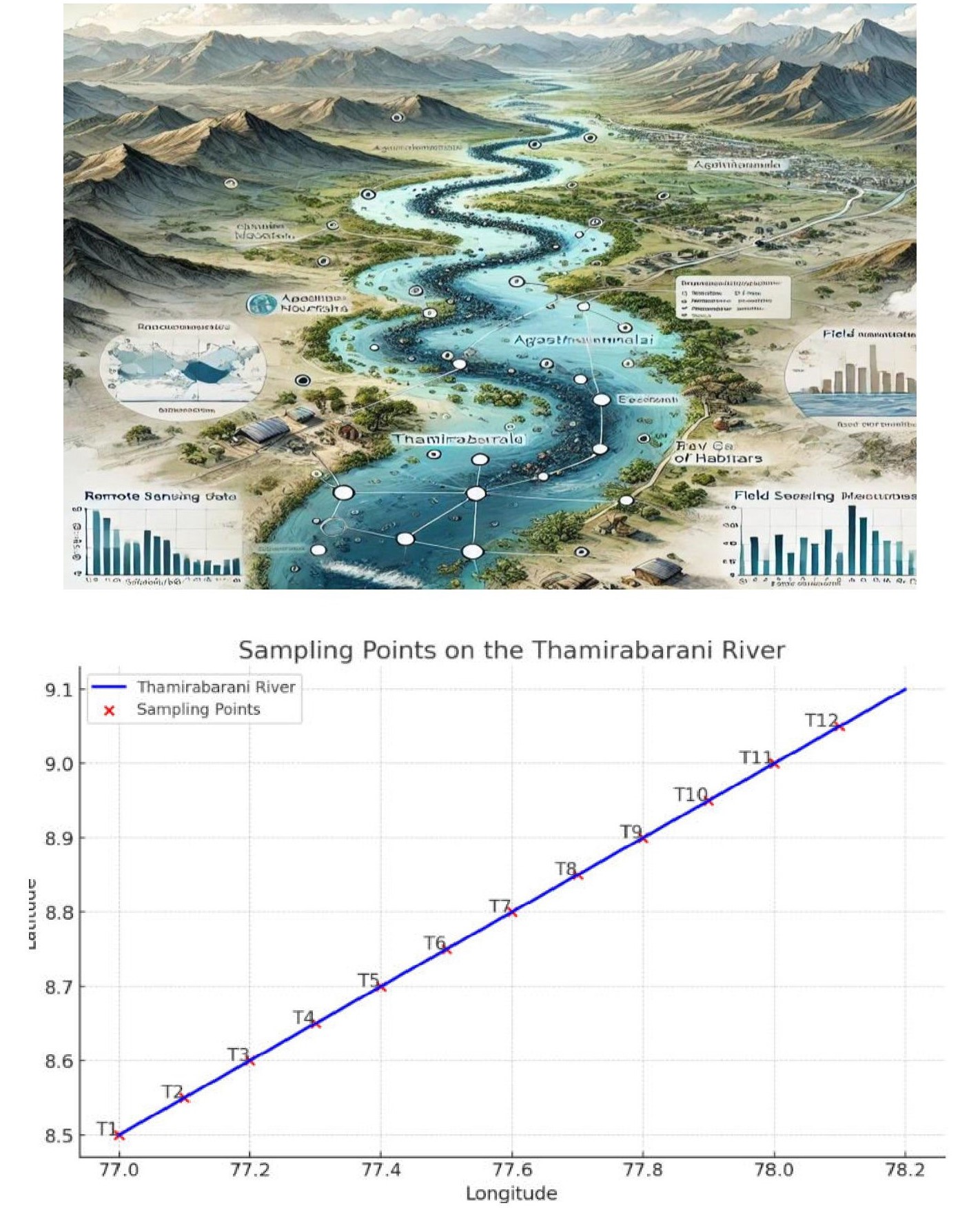
Aquatic ecosystems in the Thamirabarani River Basin, Tamil Nadu, India, are facing increasingly complex challenges due to climate change, particularly concerning water temperature and dissolved oxygen levels. This study delves into the intricate relationship between these variables and their profound implications for freshwater biodiversity. The rising temperatures and declining dissolved oxygen levels pose escalating threats to the health of aquatic organisms and the stability of ecosystems. To tackle this issue, a hybrid methodology that integrates remote sensing and field data is proposed to calculate the Water Quality Index (WQI) and comprehensively assess ecosystem health. Remote sensing data offer valuable spatial insights, while field measurements ensure accuracy, resulting in robust findings. The study uncovers a significant negative correlation between water temperature and dissolved oxygen levels, highlighting the adverse effects of warming waters on aquatic habitats. Moreover, habitat fragmentation exacerbates climate stressors, adding further challenges to freshwater biodiversity conservation. The findings underscore the urgent need for conservation and adaptive management strategies, including temperature regulation, riparian vegetation enhancement, nutrient pollution management, and habitat connectivity preservation. By implementing these measures, biodiversity loss in freshwater ecosystems can be minimized, ensuring their resilience in the face of ongoing climate change.
Total file downloads: 90